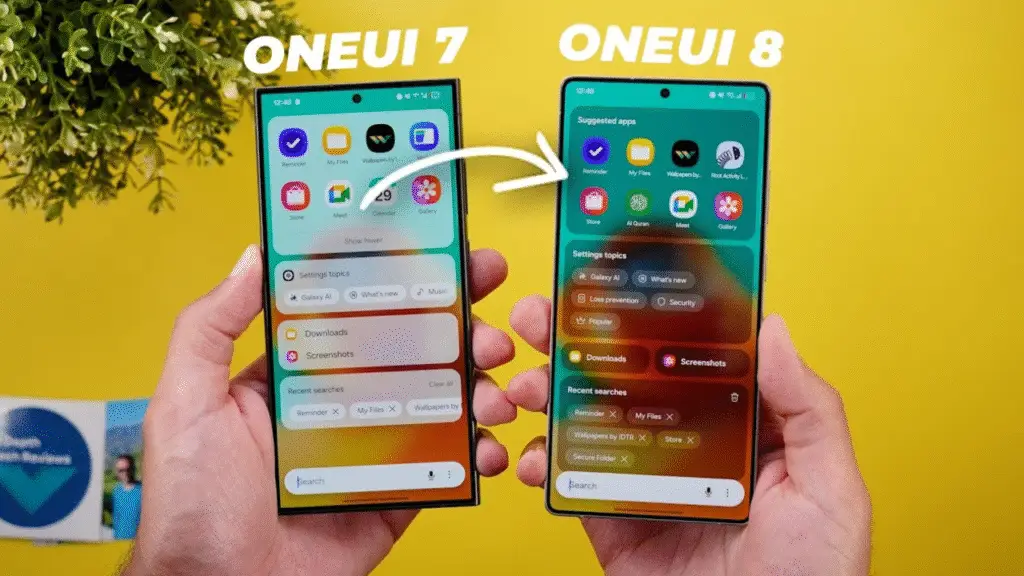You’ve probably heard that the AirPods Pro 2 are some of the best wireless earbuds out there, but recently, there’s been a lot of buzz around a different use case: hearing assistance. Apple’s second-generation AirPods Pro come with a set of features that while not officially certified as medical hearing aids might actually help people with mild to moderate hearing loss. So, I decided to dig into it and put together this real-world AirPods Pro 2 hearing aid review.
What Sparked the Interest?
It all started when Apple rolled out a few under-the-radar updates. If you’ve got an iPhone running iOS 18.1 or later, you now have access to something called custom audio setup, which includes a hearing test. Pair that with features like Conversation Boost, adaptive transparency, and Personalized Spatial Audio, and suddenly, you’ve got something that starts to resemble a hearing aid.
But how well does it actually work? Can you rely on AirPods Pro 2 to help you hear better in everyday situations? I tested it out over a few days, in different environments, and the results were surprisingly good.
Setup Is Surprisingly Simple
First off, setting up the hearing features is very easy no trips to the audiologist required. Inside your iPhone’s Accessibility settings, under Audio/Visual > Headphone Accommodations, there’s an option to take a hearing test and customize how AirPods Pro 2 sound.
The test itself is similar to a basic hearing screening. You’ll hear beeps in each ear at different frequencies, and based on that, your AirPods will adjust sound levels to match your needs. The level of personalization is impressive and while it’s not medically certified, it’s definitely helpful.
Real-World Performance: Everyday Use
I tested the AirPods Pro 2 in a few everyday scenarios:
- Quiet Conversations: At home or in a café, Conversation Boost made a noticeable difference. It picked up the person in front of me clearly and reduced ambient noise around us.
- Public Transport: In a noisy bus, it wasn’t perfect, but voices were still more distinct than with regular earbuds.
Outdoors: Wind and street noise were more challenging, but adaptive transparency did its job in reducing sudden loud sounds.
It doesn’t quite match high-end hearing aids, especially in chaotic environments, but for casual, situational use, it’s very impressive.
Comparing to Real Hearing Aids
If you’re wondering how the AirPods Pro 2 compare to traditional hearing aids, the answer is it depends. According to audiologists and reviewers on sites like HearingTracker and HearingUp, AirPods Pro 2 actually score above average for their amplification capabilities, especially when tuned properly.
One study gave the AirPods Pro 2 a SoundGrade of B, which places them in the top half of tested over-the-counter devices. With their built-in noise reduction, beamforming microphones, and transparency mode, they surprisingly hold up well for basic hearing support.
That said, traditional hearing aids are still more effective for:
- Severe hearing los
- All-day wear
- Fine-tuned clinical adjustments
- Discreet usage
Limitations You Should Know
While AirPods Pro 2 are impressive for what they are, they’re not a substitute for medically prescribed hearing aids. A few drawbacks became apparent:
- Battery Life: Around 4–5 hours per charge, which is fine for music but not great for all-day hearing support.
- Comfort: They sit deep in your ears, which may be uncomfortable over long periods.
- Lack of Medical Certification: They haven’t been approved by the FDA as hearing aids, so you should still consult a professional if you have real hearing difficulties.
- One-size-fits-all Tuning: The tuning is helpful, but not as precise as custom audiologist fittings.
Still, for a pair of wireless earbuds, the fact that you can get this much functionality is genuinely impressive.
A Great Entry Point for Mild Hearing Loss
One of the most exciting things about using AirPods Pro 2 this way is that it opens up hearing support to more people. Not everyone can afford $3,000 hearing aids, and many don’t want the social stigma of wearing one.
The AirPods look just like any other Bluetooth earbuds which makes them a discreet and affordable alternative. Whether you’re in your 30s and noticing slight hearing changes or just want help in noisy environments, this could be a great starting point.
Final Thoughts
So, what’s the verdict in this AirPods Pro 2 hearing aid review?
If you have mild to moderate hearing difficulties, and you’re already using an iPhone, the AirPods Pro 2 are an incredibly accessible and surprisingly capable option. No, they won’t replace professional hearing aids but they do enhance your hearing in everyday situations, without the cost or complexity.
Whether you’re testing your hearing for the first time or just looking for a bit of help in noisy settings, the AirPods Pro 2 are a clever, subtle, and high-tech solution that’s already in your pocket.
FAQs
Are AirPods Pro 2 good for hearing aid purposes?
Yes, and that’s exactly what many people are exploring in this AirPods Pro 2 hearing aid review. While they aren’t officially medical hearing aids, features like Conversation Boost, Adaptive Transparency, and Headphone Accommodations make them useful for people with mild hearing challenges in everyday environments.
Can AirPods Pro 2 replace traditional hearing aids?
Not completely. This AirPods Pro 2 hearing aid review highlights that while the earbuds help in quiet to moderately noisy settings, they lack the clinical tuning and long battery life of certified hearing aids. They’re better seen as a convenient, short-term alternative rather than a full replacement.
Is an iPhone required to use the hearing assistance features?
Yes, to get the most out of AirPods Pro 2 as hearing support tools, you’ll need an iPhone running iOS 18.1 or newer. The customization options that make the biggest difference like personalized audio and Conversation Boost—are iPhone-exclusive.
How effective is Conversation Boost in noisy places?
As covered in this AirPods Pro 2 hearing aid review, Conversation Boost works best in moderate environments, like coffee shops or quiet rooms. In very loud areas, it helps, but it’s not as effective as a purpose-built hearing aid.
Is it worth using AirPods Pro 2 for hearing support in 2025?
Absolutely for the right person. If you’re just starting to notice mild hearing loss or want help hearing conversations more clearly without spending thousands on hearing aids, the AirPods Pro 2 offer real value, as this review shows.
Follow Phoonomo to never miss an update
Discover more from Phoonomo
Subscribe to get the latest posts sent to your email.




